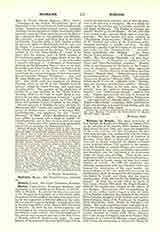

Hueber, FORTUNATUS, Franciscan historian and theologian, b. at Neustadt on the Danube; d. 12 Feb—1706, at Munich. He entered the Bavarian province of the Franciscan Reformati on November 5, 1654. On account of his excellent character and great learning he was appointed to different offices in the order. He was general lector in theology; cathedral preacher in Freising from 1670 to 1676; then in 1677 Provincial of Bavaria. In 1679 he was definitor-general and chronologist of the order in Germany, and in 1698 was proclaimed scriptor ordinis. He was also confessor to the ancient and renowned convent of the Poor Clares at Munich, called St. Jacob on the Anger. As commissary of the general of the order in 1675 and 1701 he visited the Bohemian province, and in 1695 the province of St. Salvator in Hungary. He was highly es-teemed by the nobility and by royalty, especially by the dukes of Bavaria. The Elector of Cologne appointed Hueber as his theologian. He left after him over twenty works, amongst them some of great importance. The best known and most valuable is “Menologium Franciscanum” (Munich, 1698), lives of the beatified and saints of the Franciscan order, arranged according to months and days. He also published a smaller work in German on the same subject, under the title “Stammenbuch… and jahrliches Gedachtniss aller Heiligen.. aus denen dreyen Ordens-Standen. S. Francisci” (Munich, 1693). His “Dreyfache Chronickh von dem dreyfachen Orden… S. Francisci, so weith er sich in Ober- and Nider-Deutschland erstrecket” (Munich, 1686) is very important for the history of the Francis-cans in Germany. Amongst his other important works are: “Libellus Thesium de mirabilibus operibus Domini” (Munich, 1665); “Homo primus et secundus in mundum prolatus” (Munich, 1670); “Leben des hl. Petrus von Alcantara” (Munich, 1670); “Seraphische Schule des hl. P. von Ale.” (Munich, 1670); “Ornithologia per discursus praedicabiles exhibita” (Munich, 1678), in fol. Written in the same style, but not printed, were his spiritual discourses, “Zoologia moralis”, and “Ichthyologia moralis”, each in two vols.; “Candor lucis aeternae seu Vita S. Antonii de Padua” (Munich, 1670); “Sanctuarium Praelatorum pro visitationibus” (Munich, 1684). “Quodlibetum Angelico-Historicum” (Augsburg, 1697), published in Latin and German, is a contribution dealing with the history of the cult of the angels.
MICHAEL BIHL

